I'm using WMI to get all disk information, like drives, drive letters, etc. but I have not found out how I could get the UUID/GUID of each partition.
Asked
Active
Viewed 695 times
3
-
1If you can live without WMI you could use the WinAPI: it's basically [`DeviceIoControl( ... IOCTL_DISK_GET_DRIVE_LAYOUT_EX ... )`](https://www.delphipraxis.net/186877-p.html). Works for me almost instantly with D7 on Win7. – AmigoJack Jan 19 '22 at 13:20
-
Do you mean UUID of the partition, or of the volume?https://social.technet.microsoft.com/Forums/en-US/e7b2ddd6-f245-49ed-8fec-3b6e08e75369/how-do-i-find-the-partition-guid?forum=winservergen – dougwoodrow Jan 19 '22 at 13:36
1 Answers
5
There are several WMI classes to access Disks and Partitions information:
- Win32_Volume
- Win32_DiskDrive
- Win32_DiskPartition
And these two, which relate the previous ones to each other:
- Win32_DiskDrivePhysicalMedia
- Win32_DiskDriveToDiskPartition
Specifically using Win32_Volume you can access the GUID of the existing partitions.
You can test it from shell:
> wmic volume get Driveletter, DeviceID
You get data like this:
Using delphi, you can use some components, or one code like this (by Code Creator -Rodrigo Ruz-):
program GetWMI_Info;
{$APPTYPE CONSOLE}
uses
SysUtils, ActiveX, ComObj, Variants;
procedure GetWin32_VolumeInfo;
const
WbemUser ='';
WbemPassword ='';
WbemComputer ='localhost';
wbemFlagForwardOnly = $00000020;
var
FSWbemLocator : OLEVariant;
FWMIService : OLEVariant;
FWbemObjectSet: OLEVariant;
FWbemObject : OLEVariant;
oEnum : IEnumvariant;
iValue : LongWord;
begin;
FSWbemLocator := CreateOleObject('WbemScripting.SWbemLocator');
FWMIService := FSWbemLocator.ConnectServer(WbemComputer, 'root\CIMV2', WbemUser, WbemPassword);
FWbemObjectSet:= FWMIService.ExecQuery('SELECT * FROM Win32_Volume','WQL',wbemFlagForwardOnly);
oEnum := IUnknown(FWbemObjectSet._NewEnum) as IEnumVariant;
while oEnum.Next(1, FWbemObject, iValue) = 0 do
begin
Writeln(Format('Description %s',[String(VarToStrDef(FWbemObject.Description, ''))]));// String
Writeln(Format('DeviceID %s',[String(VarToStrDef(FWbemObject.DeviceID, ''))]));// String
Writeln(Format('DriveLetter %s',[String(VarToStrDef(FWbemObject.DriveLetter, ''))]));// String
Writeln(Format('DriveType %d',[Integer(VarToStrDef(FWbemObject.DriveType, ''))]));// Uint32
Writeln(Format('Label %s',[String(VarToStrDef(FWbemObject.Label, ''))]));// String
Writeln(Format('Name %s',[String(VarToStrDef(FWbemObject.Name, ''))]));// String
Writeln(Format('SerialNumber %d',[Integer(VarToStrDef(FWbemObject.SerialNumber, ''))]));// Uint32
Writeln('');
FWbemObject:=Unassigned;
end;
end;
begin
try
CoInitialize(nil);
try
GetWin32_VolumeInfo;
finally
CoUninitialize;
end;
except
on E:EOleException do
Writeln(Format('EOleException %s %x', [E.Message,E.ErrorCode]));
on E:Exception do
Writeln(E.Classname, ':', E.Message);
end;
Writeln('Press Enter to exit');
Readln;
end.
The result looks like this:
Germán Estévez -Neftalí-
- 6,442
- 21
- 33
-
I used "Win32_DiskDrive" instead of your " Win32_Volume" and that caused DeviceID to have another meaning. Therefore I couldn't find the GUID. Thanks!. – larand Jan 24 '22 at 13:25

